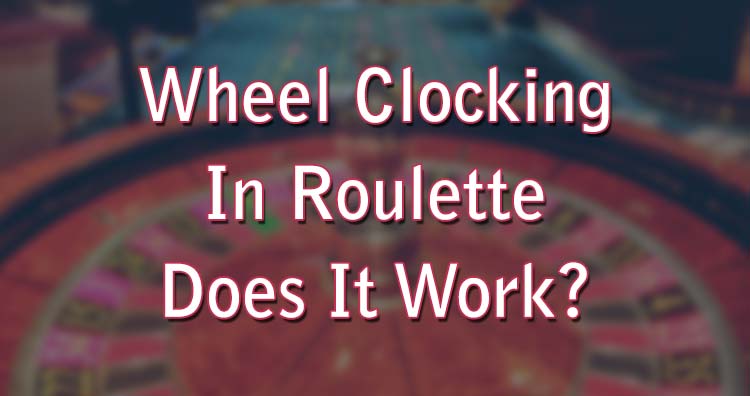
If you are familiar with the game of roulette, then you might have come across the term "wheel clocking". Here, we aim to dissect the concept of wheel clocking, its application, and whether it's a feasible or even legal strategy when playing at a roulette table.
What Is Roulette Wheel Clocking?
Wheel clocking is the practice of observing the roulette wheel and noting the results of numerous spins mentally. This information allegedly may then be used to detect potential patterns or biases on the wheel. The idea is that with time, certain areas of the roulette wheel might become worn or loose, supposedly resulting in the ball landing there more frequently.
Nonetheless, wheel clocking in roulette can be quite challenging, with numerous potential variables such as the number of spins, ball speed and the point at which the ball was released. Players then place their bets on the numbers or sections where the apparent bias is, as they believe they are more likely to win.
How Does Wheel Clocking Work?
The effectiveness of wheel clocking is subject to debate. It's true that over time, specific areas of the roulette wheel may become more worn than others, but it won't be enough to lead to possible bias in the outcomes. Most modern roulette wheels are very well-maintained to ensure they are balanced, meaning the chances of finding a significant bias in the wheel are extraordinarily slim.
Moreover, even if a bias were present, it's unlikely that it would remain consistent long enough for players to exploit it. Most casinos in the UK regularly maintain and replace their roulette wheels, meaning that any potential issue would be quickly corrected. Below are the two main ways players implement wheel clocking.
Visual Wheel Clocking
Visual wheel clocking involves manually observing the roulette wheel, watching the spins, and mentally recording the outcomes.
Electronic Wheel Clocking
Electronic wheel clocking involves using electronic devices such as a computer or smartphone to record the outcomes of the spins. The data is then analysed using specialised software or apps to try to identify a pattern or bias.
Is Roulette Wheel Clocking Legal?
Visual wheel clocking is not considered illegal, as it is merely a matter of observing the spins, and the casino cannot stop you from doing that.
However, the use of electronic devices to record the outcomes of the spins is considered cheating. Casinos have policies that prohibit players from recording the outcomes of the spins, whether done manually or electronically. Therefore, it is illegal in casinos.
Conclusion
In conclusion, wheel clocking involves observing the roulette wheel and recording the outcomes of numerous spins to try to identify potential patterns or biases in the wheel.
The reality is that most modern roulette wheels are well-maintained and balanced, making it unlikely that you would find any significant bias. Additionally, the house edge is still in place and remains unaltered.
Wheel clocking is an illegal practice and is unreliable, so it is best to accept roulette as a random game of chance where anything can happen. Please gamble responsibly and never chase your losses.
